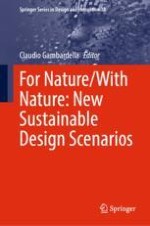2024 | OriginalPaper | Buchkapitel
Rely on Available Resources: Designing Sustainability Education Technologies for Low Resources Scenarios
verfasst von : Alessandro Pollini, Gian Andrea Giacobone
Erschienen in: For Nature/With Nature: New Sustainable Design Scenarios
Verlag: Springer Nature Switzerland
Aktivieren Sie unsere intelligente Suche, um passende Fachinhalte oder Patente zu finden.
Wählen Sie Textabschnitte aus um mit Künstlicher Intelligenz passenden Patente zu finden. powered by
Markieren Sie Textabschnitte, um KI-gestützt weitere passende Inhalte zu finden. powered by
